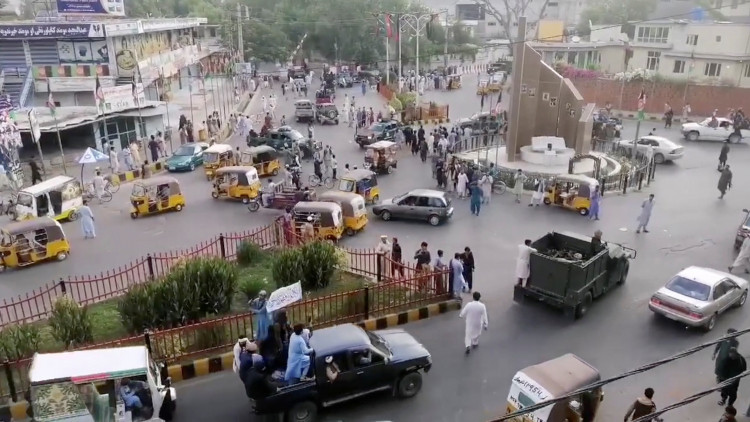In a meeting with the acting foreign affairs minister of the Taliban government on Monday (Jan. 23), the head of the UN's relief efforts expressed concerns about women's access to education and employment.
In a statement from the ministry of foreign affairs, UN Under-Secretary-General for Humanitarian Affairs Martin Griffiths brought up the subject of women's employment and education and how it affected UN operations.
Last month, the Taliban-led government issued an order prohibiting the majority of female employees from working for NGOs. As a result, several aid organizations had to largely halt their operations as a humanitarian crisis developed amid a severely cold winter.
It comes after UN Deputy Secretary-General Amina Mohammed raised concern to Taliban leaders in Kabul and the southern city of Kandahar over the government's directives limiting women's access to work and education during a trip to Afghanistan last week.
Amir Khan Muttaqi, the interim foreign minister of Afghanistan, stated that he requested Griffiths to inform the world of the Taliban administration's "achievements and opportunities," such as a general amnesty for former adversaries, "instead of complaints and shortcomings."
Based on a statement from the foreign ministry, Griffiths noted that security in the nation, which had endured decades of conflict before the Taliban took control in 2021 as Western soldiers withdrew, had improved.
Since the Taliban government took over, no foreign country has publicly recognized it; some diplomats believe it needs to reverse its position on women's rights. Many nations have raised grave concerns about the fact that the majority of girls and women over the age of 12 are prohibited from entering school or higher education.
More than half of the population is now dependent on humanitarian aid to meet critical needs as a result of the country's economic crisis, which has been exacerbated by the enforcement of sanctions and a reduction in development funding.
Last month, the U.N. General Assembly postponed its decision on whether to allow the Taliban government to send an ambassador to New York for a second time. Numerous Taliban figures are now under U.N. sanctions. sanctions. Since the Taliban government gained control in August 2021, no official recognition has been given to it by any authority.
As stated by the head of the Norwegian Refugee Council, a significant aid organization that has suspended operations in Afghanistan, it is crucial for the international community to communicate with the Taliban leaders in Kandahar because many Kabul officials gave off the impression that the directives limiting women's rights originated from there.






